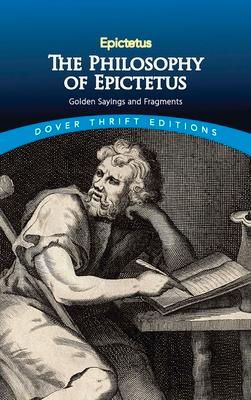
Unfortunately this title is no longer available
"There is only one way to happiness and that is to cease worrying about things which are beyond the power of our will."
"Is there smoke in the room? If it be slight, I remain; if grievous, I quit it. For you must remember this and hold it fast, that the door stands open."
A leading thinker of the Stoic school of philosophy, Epictetus (A.D. 55-135) was a renowned teacher whose students transcribed and compiled his teachings; this collection presents the work of Arrian, a Greek philosopher and historian who was a disciple of Epictetus. In these two brief but highly influential works, Epictetus demonstrates that philosophy is more than a theoretical discipline; it is a way of life based on logic, reason, and self-reflection. His examination of the nature of fate and man's place in the universe explores the distinction between what is and is not within our power, the meaning of good and evil, how we should live, and many other timeless issues.
"There is only one way to happiness and that is to cease worrying about things which are beyond the power of our will."
"Is there smoke in the room? If it be slight, I remain; if grievous, I quit it. For you must remember this and hold it fast, that the door stands open."
A leading thinker of the Stoic school of philosophy, Epictetus (A.D. 55-135) was a renowned teacher whose students transcribed and compiled his teachings; this collection presents the work of Arrian, a Greek philosopher and historian who was a disciple of Epictetus. In these two brief but highly influential works, Epictetus demonstrates that philosophy is more than a theoretical discipline; it is a way of life based on logic, reason, and self-reflection. His examination of the nature of fate and man's place in the universe explores the distinction between what is and is not within our power, the meaning of good and evil, how we should live, and many other timeless issues.
Paperback
$5.00